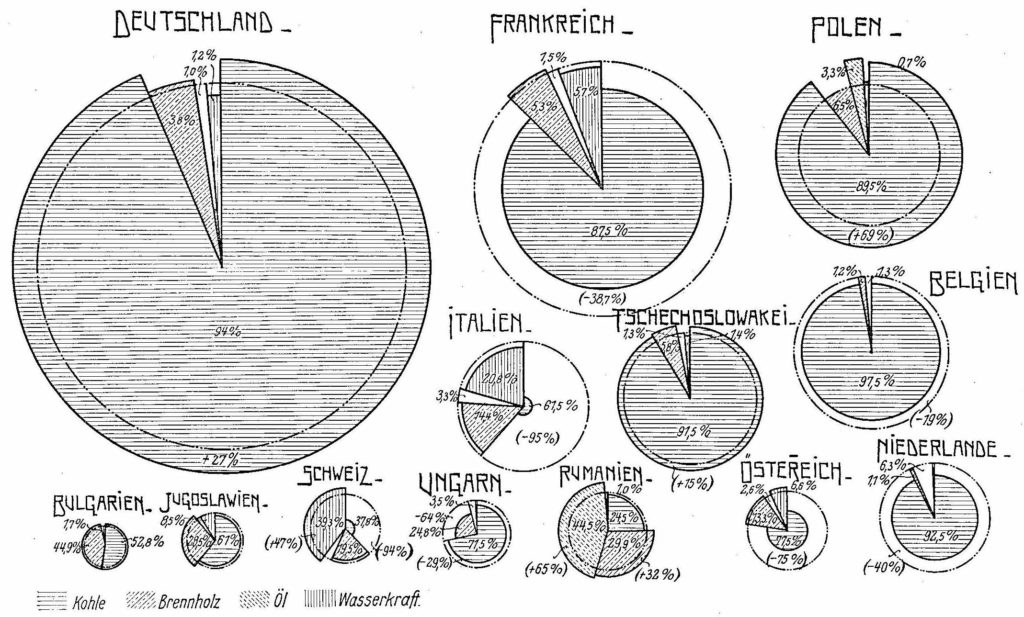Working Nature

How did we come to conceive of nature in terms of its ability to work? In my current book project with the provisional title „Working Nature: Steam, Power, and the Making of the Energy Economy (1830-1980)“, I trace the practices in which nature was put to work from the handling of steam engines, the management of power systems, to the politics of energy economics and energy development. Far from simply applying the laws of thermodynamics, engineers and economists had to tackle entirely different questions: What is the value of fuel? How does a profitable power system look like? What is the impact of electricity on prosperity? Is energy a scarce good? Are steady-state energy systems possible? In a series of historical studies, I conceptualize energy as an ever elusive physical and economic effect, never quite pinned down by engineering and economic scrutiny. I understand my research as a historical epistemology of the energy economy in the sense of Gaston Bachelard and Hans-Jörg Rheinberger: It explores the conditions under which energy emerges as an object of engineering and economics.
Russ, Daniela (2021): Deciphering Economic Futures: Electricity, Calculation, and the Power Economy, 1880-1930, In: Centaurus 63 (4), 631-50. Download here.
Russ, Daniela (2020): Speaking for the ‘world power economy’: electricity, energo-materialist economics, and the World Energy Council (1924–78). In: Journal for Global History 15 (2), 311-29. Download here.
Russ, Daniela (2020): Die Wirtschaft, durch Strom gelesen: Elektrizitätssysteme als energiewirtschaftliche Aufschreibesysteme (1880-1930). In: Zeitschrift für Medienwissenschaft 23, 74-83. Download here.
Russ, Daniela (2017): Making Sources of Energy: The Case of Coal (1900-1936). In: Innovation: The European Journal of Social Science Research 30 (3), 1-15. Download here.
Soviet Energetics

My post-doctoral project “Nature’s Efficiency: Energetika as a Political Ecology of the Soviet Union (1917-1992)” examines how Soviet energy engineers and economists shaped planning decisions about which resources to exploit, where to produce, and which technologies to use. I am particularly interested in how the engineers resolved the conflict between material and cost efficiency by drawing on Marxist, ecological, and cybernetic ideas. My goal is to understand both the historical specificities of the Soviet energetic school and relate it to the making of productivist economies in other capitalist and socialist countries.
Russ, Daniela (forthcoming): A Red Thread Toward a Socialist Economy, Kommentar und Übersetzung von Gleb Krzhizhanovskiis ‚Energetics and Socialist Reconstruction (1929)‘. In: Russ, Daniela; Turnbull, Thomas (eds.): Energy and Society: An Alternative Reader. Download preprint here.
Russ, Daniela (2022) ‘“Socialism Is Not Just Built for a Hundred Years”: Renewable Energy and Planetary Thought in the Early Soviet Union (1917–1945)’. In: Contemporary European History 31 (4), pp. 491–508. Open Access: https://doi.org/10.1017/S0960777322000431.
Russ, Daniela (2021): Energetika: Gleb Krzhizhanovskii’s Conception of the Nature-Society Metabolism. In: Historical Materialism 29 (2), pp. 188-218. Download here.
Russ, Daniela; Turnbull, Thomas (2021): Power Competition. Comparing Energetic Productivity in the Early Twentieth Century. In: Russ, Daniela; Stafford, James (ed.): Competition in World Politics. Download here.
Mapping Global Energy Knowledge
Knowledge on energy is global in its ambition: Emerging in a world of steam ships, telegraphy, and nascent industrial consciousness, the concept of energy refers to a material basis all societies share. For this reason, it was central to both imperialist and anti-imperialist projects, and could serve as a measure of industrialization across socialist and capitalist countries. As a byproduct of my research on the World Energy Council, I began to put together a database on persons, institutions, and publications involved in the production of knowledge on energy. While this collection follows my research interests and is far from comprehensive, it shows networks around organizations, the expertise assembled in committees, and the influence of publications over time and space. I plan to integrate the research of other energy historians into the database and make it generally accessible.
Russ, Daniela (2019): The World Energy Council as an Archive for Research on Energy History. In: The Journal for Energy History/Revue d’Histoire de l’Énergie [Online] 4, published 19 December 2019, URL: http://www.energyhistory.eu/en/energy-sources-news-archives-and-heritage/world-energy-council-archive-research-energy-history.
